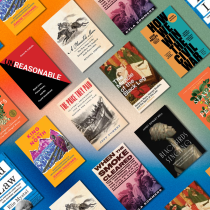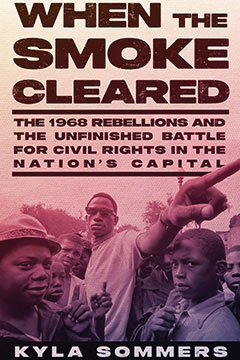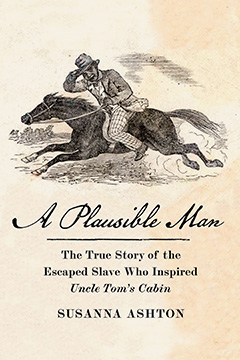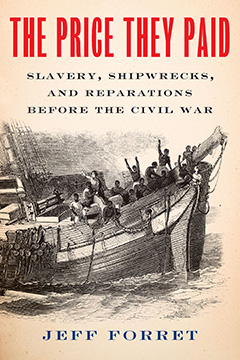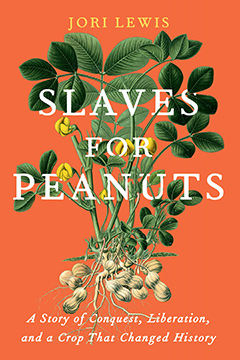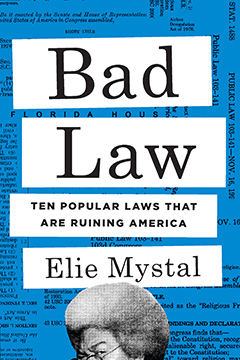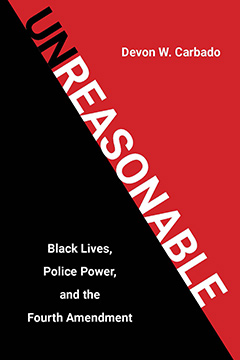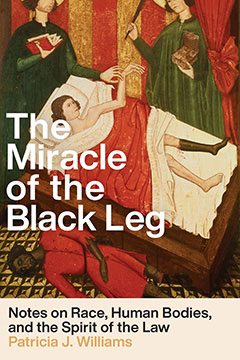A riveting account of activism, urban reimagination, and political transformation, When the Smoke Cleared tells the story of the Washingtonians who seized the moment to rebuild a more just society, one that would protect and foster Black political and economic power. Kyla Sommers’s revealing and deeply researched narrative is ultimately a tale of blowback, as the Nixon administration and its allies in Congress thwarted the ambitions of DC’s reformers, opposing civil rights reforms and self-governance.
Click
here to read an excerpt from
When the Smoke Cleared by Kyla Sommers published by the History News Network.
In a stunning historical detective story, A Plausible Man recounts the remarkable story of the man behind the book that helped spark the Civil War. Susanna Ashton combs obscure records for evidence of Jackson’s remarkable flight from slavery to freedom, his quest to liberate his enslaved family, and his emergence as an international advocate for abolition.
Read an excerpt from
A Plausible Man by Susanna Ashton in
Literary Hub.
Prizewinning historian Jeff Forret uncovers one of the earliest instances of reparations in America—ironically, though perhaps not surprisingly, paid to slaveholders, not former slaves. The Price They Paid challenges our understanding of historical justice and its lingering consequences today. Read an excerpt from The Price They Paid below.
The winner of the James A. Beard Foundation Book Award and Harriet Tubman Prize, Jori Lewis weaves a gripping history of how European demand for peanut oil ensured that slavery in Africa would persist well into the twentieth century, long after the European powers had officially banned it in the territories they controlled.
Slaves for Peanuts is a revelatory exploration of how global markets fueled human bondage, challenging common assumptions about imperialism and freedom. Read an outtake from Jori Lewis’s
Slaves for Peanuts published in
Guernica.
With wit and razor-sharp legal insight, Elie Mystal exposes ten of the worst laws shaping American life—from gun manufacturer immunity to attacks on reproductive rights. Bad Law is both a scathing critique and a hopeful call to rewrite the rules for a just society.
Read the introduction to Bad Law below.
In this crucially timely book, Unreasonable offers a groundbreaking investigation of the role that the law—and the U.S. Constitution—play in the epidemic of police violence against Black people. Celebrated legal scholar Devon W. Carbado explains how the Fourth Amendment became ground zero for regulating police conduct—more important than Miranda warnings, the right to counsel, equal protection and due process.
Watch a discussion of
Unreasonable with author Devon Carbado in conversation with Paul Butler on
C-SPAN's Book TV.
Legal scholar Patricia J. Williams unravels the complex ties between race, science, and ownership in The Miracle of the Black Leg. With sharp legal insight, she exposes how laws have commodified human life—governing everything from body parts to DNA—while marginalizing nonconformity and minority identities. Provocative and brilliant, this book challenges who really controls our bodies and identities in a world of legal and ethical entanglements. Read an excerpt from The Miracle of the Black Leg below.
From Harriet Tubman to Congresswoman Barbara Lee, Blackbirds Singing showcases two centuries of powerful speeches by Black women. Social justice activist and scholar Janet Dewart Bell curates a stirring collection of voices that have shaped movements for justice, leadership, and liberation. Read an excerpt from Blackbirds Singing below.
As a no-nonsense, political critique, How We Win the Civil War shows us how to rid our politics of white supremacy, once and for all. Steve Phillips delivers razor-sharp prescriptions for the new political season, including specific guidance for politicians, policymakers, and ordinary citizens alike.
Read an excerpt from
How We Win the Civil War in
The Guardian.
